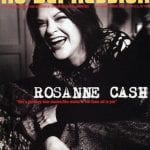Still Feeling Gone
August 1987. I first moved to St. Louis, after a protracted exile in Utah. I had grown up in the midwest; St. Louis was a new town to me but still felt like home. I was living on a college English department stipend, around $500 a month, and chose the cheapest apartment I could find, close to the university, just off of Delmar Boulevard, in an area known as the Loop. I had two roommates and we split $375 a month three ways. What I had left over I spent on records at a nearby record store, Vintage Vinyl, mostly jazz on Prestige and Impulse, but I also had a ratty copy of Rolling Stone’s 100 Greatest Albums Of All Time, and decided to buy every one I didn’t already own.
My neighborhood on and around the Delmar strip was dying, not even waiting to be born. The old Tivoli movie theater showed Rocky Horror at midnight, and birds nested behind the screen. Most of the storefronts stood empty, save for a restaurant here and there, a used bookstore, a couple of cramped record stores, and two bars of note: Blueberry Hill and Cicero’s.
In the mid ’90s, the owner of the former would begin a major restoration of the strip and buy out the latter. When I first moved to the Loop, I frequented Cicero’s for the cheap but digestible Italian food. I saw a flyer in the club for a Wednesday jazz session, and skipped the library one night to have a beer. The downstairs club, as spacious and inviting as a meat locker, smelled of old water that dripped from the ceiling. Through the late ’80s and early ’90s, the joint became a kind of CBGBs to the local college kids, musicians, artists and slackers. One night a friend told me about a band that had been playing regular weekend gigs. They were called Uncle Tupelo and, he said, I had to hear them.
I didn’t know it at the time, but I had already seen the band’s two singers. They were sitting out on Delmar, in front of Streetside Records, beating on a couple of acoustic guitars. I might have thrown a quarter in their guitar case; I don’t remember. A lot of kids played music on the sidewalk along Delmar, and I was probably late for class. I remember that night at Cicero’s, though, only because I left early. They were loud, the sound excruciating, the songs indecipherable. The band had energy but so did a tractor pull, and the latter seemed more in tune. I connected with a Neil Young cover and little else. Besides, I had to finish a paper on Paradise Lost, and students were on a hunger strike in Tiananmen Square.
Two years passed, I left St. Louis, left the country, drifted around Latin America. I gave the band no further thought. I returned in the winter of 1991, found the apartment where I still live today, cashed my first teaching paycheck and headed to Vintage Vinyl to buy a copy of Trout Mask Replica. The clerk praised my purchase and asked if I had heard the new Uncle Tupelo album. No, I said, but I had seen them once. He put an ugly green album in my hands. He said I could return it for store credit if I hated it. He didn’t think I would.
This wasn’t the band I had heard at Cicero’s, or rather, these weren’t the songs. I pored over Still Feel Gone and nearly forgot Trout Mask. I heard a focus, an intention, a shocking fusion of social criticism and blistering rock. As the record spun and spun again, I heard echoes of Zuma and Exile and Wild Gift, but mostly I heard voices and melodies and rhythms played at the edge of frenzy and fusion. In “Gun”, I heard Emily Dickinson — “My life it stood a loaded gun” — and in “Looking For A Way Out”, a declaration of independence.
Over the next two years I started hanging out at Cicero’s again and fell in love with other bands that appeared there regularly, both local and otherwise: the Bottle Rockets (formerly Chicken Truck), Blue Mountain, the Jayhawks. But Uncle Tupelo had outgrown the space. The band still played the Blue Note in Columbia, Missouri, and when I could afford it and could coax a friend into making the drive to that “three hour away town,” I heard some of the most overwhelming rock shows I’ve ever experienced. Driving back to St. Louis after one show at the Blue Note, a friend said to me, “If these kids weren’t making music, they’d be killing people.” I understood what he meant.
Uncle Tupelo’s subsequent record, March 16-20, 1992, asserted an unironic love for country music and an intuitive mastery of country themes that I barely expected at the time. (That album, along with Still Feel Gone and the group’s 1990 debut No Depression, return the shelves this month as reissues on Columbia/Legacy, each with several extra tracks.)
In the end, nobody understood what was happening. Some can look back with false nostalgia on those days and say they were there, but nobody was really there. We just fell in love with a band that could hit like a piledriver and could collapse mid-encore from excess drink. When they covered Black Flag, they slowed it down and countrified it. When they covered “Cocaine Blues”, they punked it into oblivion. But the songs and harmonies lingered and lingered after the shows were over. We couldn’t have known it at the time, but we were hearing a genuinely great band come of age, and we were sure it would never end.




